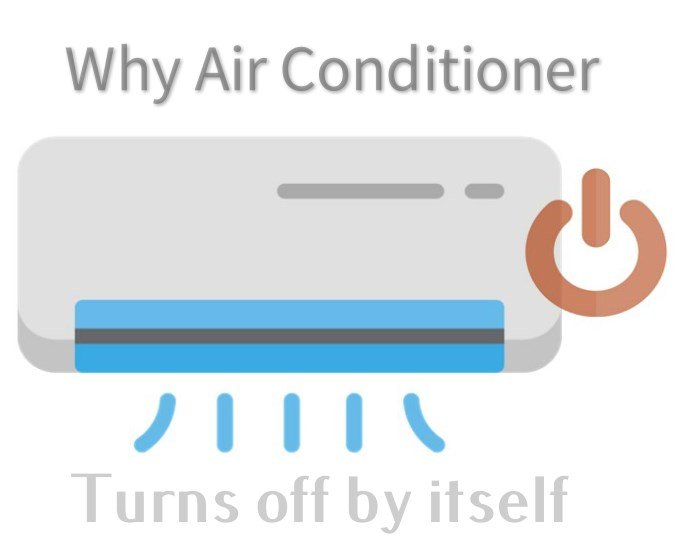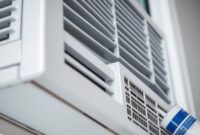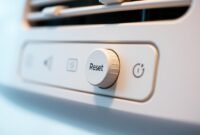Are you fed up with your air conditioning turns off by itself? We’ll assist you in resolving this aggravating air conditioner problem. Your air conditioner may have a problem with the airflow, thermostat, or refrigerant level if it keeps turning off on its own. Let’s take a closer look at each of these difficulties in the sections below.
The Air Conditioner Turns Off by Itself because It Isn’t Getting Enough Airflow
Your air conditioner has to pull in a consistent stream of warm air from your home to efficiently chill it. If your air conditioner isn’t getting enough air, components such as the blower will have to work harder to keep your house cool. These components can eventually overheat and cause your air conditioner turns off by itself frequently.
A dirty air filter is one of the most significant airflow stifles. Because all air entering your AC must pass through the filter, air cannot pass through if the filter is clogged with dirt. This problem also causes your portable air conditioner turns off by itself.
Make sure your air filter is in good working order. If the filter appears to be clogged, replace it with a fresh one. Low airflow can also be caused by the problems with the blower fan motor, leaky ducts, or blocked vents.
Your AC Thermostat is broken
The thermostat can be thought of as the “brain” of your air conditioner. Your air conditioner receives signals from the thermostat, which instruct it when to turn on and off. This also may be the cause of why your air conditioner turns off after 30 seconds.

Thermostats, like any other piece of electrical equipment, can break down. The device itself could be malfunctioning, or the cable connecting the thermostat to the air conditioner could short out, causing the system to shut off when it shouldn’t.
The Refrigerant in Your Air Conditioner is Low
The material that cools the air in your home is refrigerant. If your air conditioner is low on refrigerant (which means there’s a leak somewhere), the accompanying pressure change can cause a safety switch to trip, shutting down a critical component called the compressor.
If your compressor fails, your air conditioner will stop chilling the air in your home. Once the pressure has returned to safe levels, the compressor will switch back on. However, if you don’t have a professional check for leaks and supply refrigerant to your air conditioner, it will continue to shut off on its own.
If you find indicators such as energy bills that are higher than usual, your air conditioner is making hissing noises, the indoor unit is surrounded by water, or cooling power loss, you may have a refrigerant leak.
The Air Filter is Full of Dirt
Despite the fact that clogged air filters are one of the most commonly acknowledged factors affecting the efficiency of air conditioners, the filter is often the most overlooked component of the system that requires the most attention.
Your air conditioner will perform at a decreased efficiency if your air filters are clogged, which means your home will not be properly cooled. It can be difficult to determine the reason when the power charge begins to creep higher.
Short-Cycling
The term “short-cycling” refers to an air conditioner or heat pump system that gets stuck in the startup cycle and switches on and off quickly without ever cooling completely.
Short cycling can be caused by a variety of major issues, as it is with most AC system issues. It’s possible that you have a system that’s too big for your home, which is most likely the case if it’s been short cycling for a long time. Unfortunately, there isn’t much you can do about this except replace the system with one that is better suited to your home.
A broken thermostat is another common cause of short-cycling. The cooling cycle will be interrupted if the thermostat detects incorrect temperatures. This can be fixed or replaced by a professional HVAC technician.
Those are some reasons why your air conditioning turns off by itself. If you don’t know what you’re doing, it’s advisable to call a trained repairman to help you diagnose and solve the problem. If your air conditioner is still under warranty, you could also contact the manufacturer for assistance.


